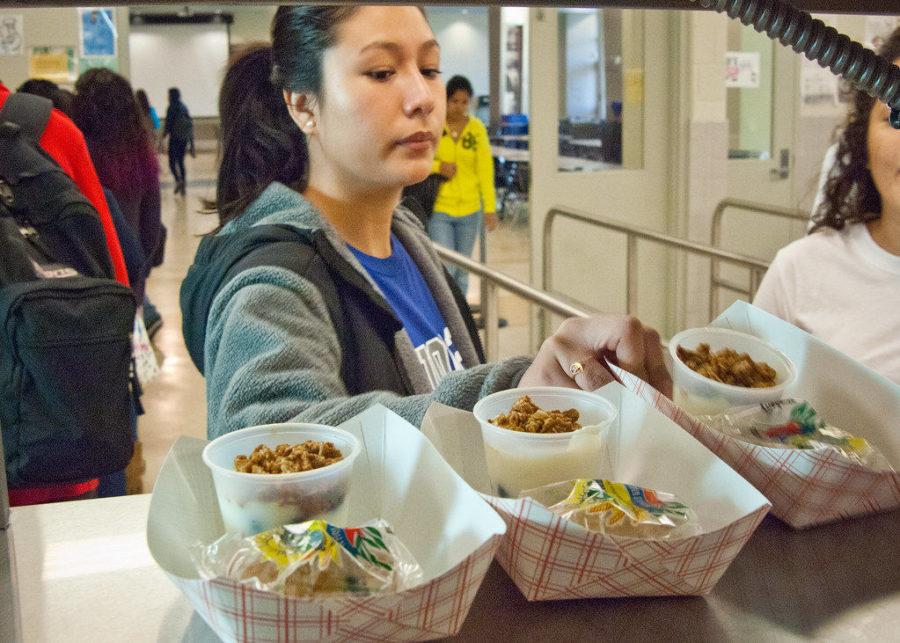Petzold: Cease Lunch Shaming
Guest columnist Walter Suza believes Americans need to address many issues surrounding world hunger experienced by children. Suza argues that Americans need to take many actions to fight hunger, which include erasing the stigma associated with food insecurity and helping to reduce food waste in the U.S.
May 13, 2019
Remember the days in elementary school where you’d walk to the cafeteria ready to eat? After being directed through an unbearably-long line with your fellow classmates, you’d victoriously come out with warm food. It was a magical time during the school day.
At the end of the line, there was a lunch lady who would examine the food you got and poke at a computer a few times, then tell you to go sit down. Then one day, she told you that you have something called a “low balance” and you should tell your parents. You wonder what that means.
During these “low-balance” times, when your parents didn’t put money into your account, the lunch lady would give you a different lunch than most of the other kids, but not different in a good way. The other kids stare. This is lunch shaming.
According to the Albuquerque Journal, lunch shaming is “… denying children school meals or otherwise embarrassing them in front of their peers as a debt collection tool to pressure their parents to pay the lunch bills.”
While some schools choose to mark low-balance students with stickers or brightly-colored bracelets, Rhode Island has chosen to mark them with sun butter and jelly sandwiches.
A CNN article stated that “school lunch shaming was back in the news last week when a Rhode Island school district prepared to serve a separate cold meal — sun butter and jelly sandwiches — to students with lunch debt.”
The school district in question, Warwick Public School District, posted on their Facebook page, “In accordance with Warwick School Committee Policy EFB; Effective Monday, May 13, 2019, if money is owed on a paid, free, or reduced lunch account a sun butter and jelly sandwich will be given as the lunch choice until the balance owed is paid in full or a payment plan is set up through the food service office.”
Since it is parents missing payments and putting their children into lunch debt, should students be the ones to be punished by the school?
I vote no. Students do not have an income and cannot force their parents into paying the school. So why are students being embarrassed during lunch due to debt caused by their parents?
Schools should make an effort to contact the parents responsible for a student’s low balance before taking action against the student during lunchtime. Instead of putting bands and stickers on students or giving them lackluster lunches, schools could implement a limit of “forgivable” debt on the lunch account, say $30, before bringing the student into the situation.
The Albuquerque journal stated that “on April 7, New Mexico became the first state in the country to prohibit schools from a practice called ‘lunch shaming’ through the Hunger-Free Students’ Bill of Rights.”
New Mexico seems to understand that children shouldn’t be used as pawns to get lunch money payments. Let’s encourage students to spend their time at school learning and making lifelong friends instead of worrying about embarrassment at lunchtime.







